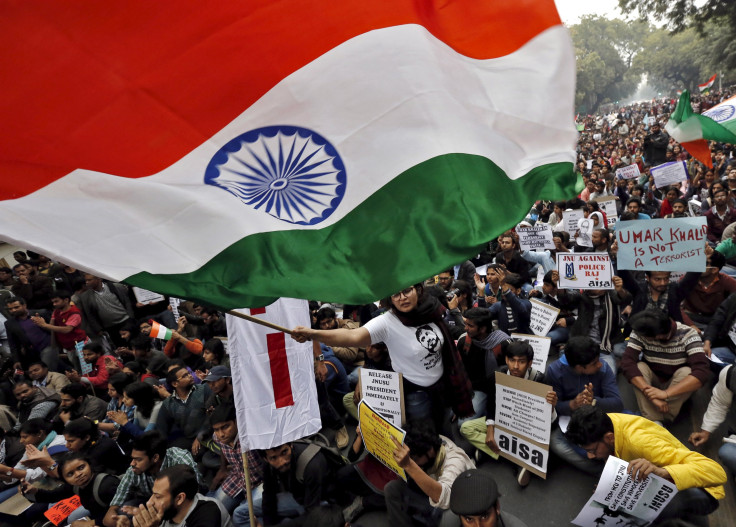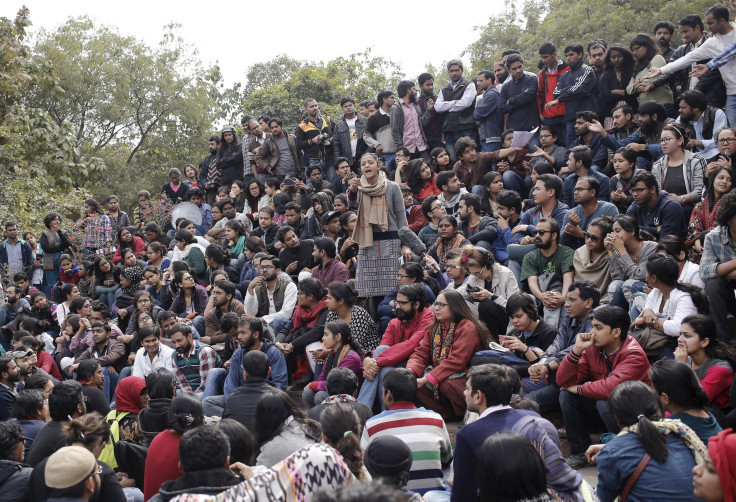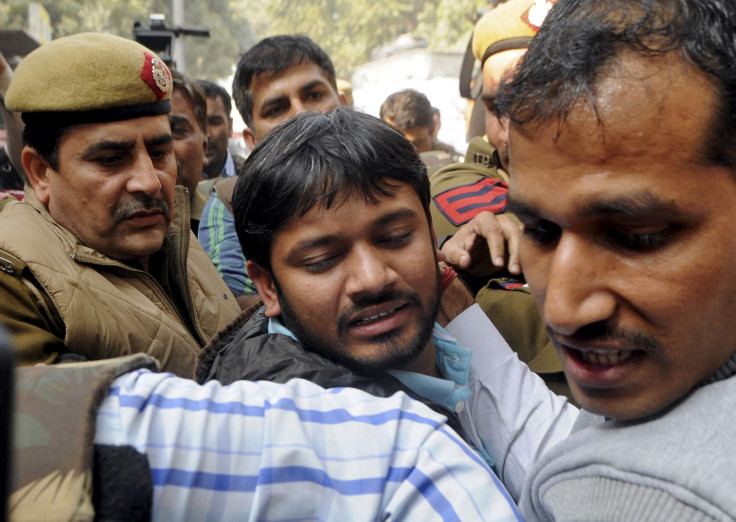Indian National Flag To Fly ‘Prominently And Proudly’ At Universities In The Country

As students across university campuses in India continued to protest against the arrest of a students’ union leader on sedition charges, a conference of Indian university vice chancellors, chaired by the country’s Human Resource Development minister, passed a resolution making it mandatory for all government-funded universities to fly the national flag “prominently and proudly” at “a central place.”
The resolution, one among a dozen, was passed unanimously at the meeting attended by vice chancellors of 39 universities, according to a statement released by the Indian government’s Press Information Bureau. According to local media reports, the resolution to hoist the Indian flag on campuses was aimed at “instilling nationalism and pride” among students. Last week, Kanhaiya Kumar, a student leader from New Delhi’s Jawaharlal Nehru University (JNU), was arrested for allegedly indulging in anti-India slogans, and the incident has led to widespread protests across the country.

Last week, a demonstration was held in JNU to commemorate the anniversary of the 2013 hanging of Afzal Guru, convicted of a 2001 armed attack on the Indian Parliament. Anti-India slogans were allegedly raised at the gathering and 28-year-old Kumar, president of JNU’s students union, was arrested and charged with sedition under laws that date to India’s pre-independence colonial era.
His Feb. 12 arrest led to protests by students across the country, with demands for dropping the sedition charges against Kumar and calling for his release. Opposition political parties, teachers and academics, including some from international universities, have voiced their support for Kumar and the protests against his arrest.
When Kumar was being brought to a court in New Delhi on Feb. 15, he was attacked outside the premises by lawyers, who also targeted other protesting students, Kumar’s lawyers and journalists. Kumar was attacked again by lawyers inside court premises on Feb. 17.
The student leader has maintained he did not raise any anti-national slogans and media reports have speculated that those chanting anti-India slogans were not JNU students.

The Indian Express, a local newspaper, cited officials from the Ministry of Human Resource Development — which also oversees education governance in India — to report that JNU would be the first campus to hoist the national flag in compliance with the resolution passed Thursday. According to Reuters, which also cited ministry officials, the new flag masts would be 207 feet tall — about the same height as the Statue of Liberty in New York.
JNU vice chancellor M. Jagadesh Kumar told the Indian Express: “It is a matter of pride for JNU to install the national flag on our campus. We will identify a suitable place and work on it.”
Naveen Jindal, a member of the Rajya Sabha (Parliament’s upper house) from the opposition Indian National Congress party, reportedly welcomed the move, saying: “I have had a dream, a dream to see the Tiranga [tricolor, a reference to the Indian flag] flying in all parts of the country. This is a dream come true for me.” Jindal had won a 2004 case in the Supreme Court that allowed all Indian citizens to fly the national flag on all days of the year.
There were others, like the former chief minister of India’s restive Jammu and Kashmir state, Omar Abdullah, who dismissed the resolution.
If hoisting the flag was all it took to address feelings of alienation problems of Kashmir & North East would have been solved decades ago.
— Omar Abdullah (@abdullah_omar) February 18, 2016
“This is psychological warfare. The government has decided that students are not patriotic enough and they will do something about it,” N. Bhaskara Rao, chairman of the Centre for Media Studies in New Delhi, Reuters reported.
© Copyright IBTimes 2024. All rights reserved.





















